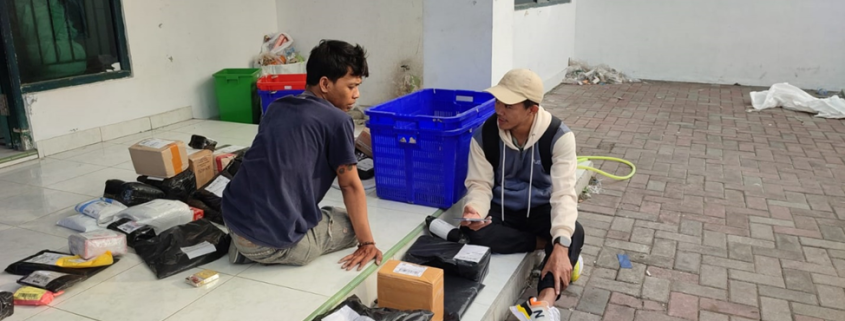Improving e-commerce ecosystem as an approach to strengthening digital transformation initiatives
Improving e-commerce ecosystem as an approach to strengthening digital transformation initiatives
Muyanja Ssenyonga, PhD, Muhammad Pudail, Erwin-Al- Fatih
This research analyzes the performance of the e-commerce ecosystem in Indonesia by investigating the experiences and perceptions of sellers, courier service officers and buyers. This research uses a descriptive research design. Surveys are used to collect primary data while secondary data is obtained from credible sources that are easily accessible online including websites, blogs, official reports, research papers, and other sources deemed relevant to the topic. The research results show that as components of the e-commerce ecosystem, sellers, couriers and buyers have similar problems, but there are also many areas where they show marked differences in their perceptions of opportunities, challenges and obstacles. Sellers consider access to financing, the ability to stock a variety of merchandise, the costs of transporting merchandise from suppliers to their locations and delivering it to customers, merchandise returns, and increased competition as issues they consider important to the success of their businesses. Meanwhile, buyers consider product variety, value, transportation, packaging quality, timeliness of delivery, brand, product condition during delivery, courier performance as several considerations in deciding to make an online purchase. Courier service staff, considering the financing of their operations, flexibility of working conditions, insurance, transparency of remuneration, mode of payment for delivered products (COD or prepaid), and the risk of losing merchandise before delivery to buyers are issues that influence their perception of their work. The main contributions of this study include providing information to e-commerce development policies regarding what needs to be done to improve performance; identify key stakeholders and the roles they play in the ecosystem; the obstacles and challenges they currently face, and perceptions regarding the prospects for the e-commerce space in Indonesia. This study also provides perspectives on issues of concern to the Indonesian e-commerce space including competition, transportation and logistics, as well as the role in the digital economy. The research results provide guidelines for improving Indonesian e-commerce in the future, including the need to ensure that improvements impact all components of the ecosystem, namely e-commerce platform infrastructure, sellers, couriers, buyers and regulators; involving all key policy stakeholders in formulation and implementation; transaction payment method; and a number of practices that need to be improved for the progress of e-commerce in the future.



